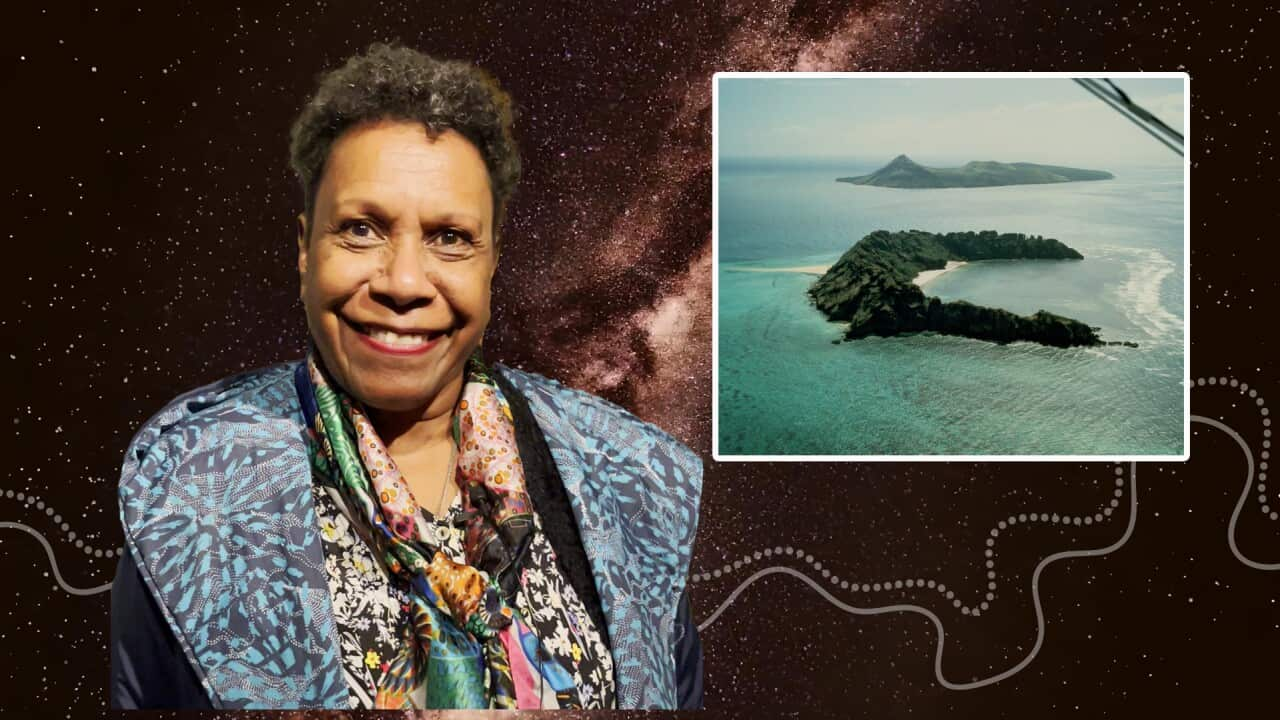Entrepreneurs in the Torres Strait say tourism is “putting food on the table” for families.
But perhaps an even bigger benefit is that tourism is helping to keep culture strong, while teaching travellers about the impatcs of climate change impacts on the Strait's seafaring communities.
Fraser Nai, co-founder of local tourism operator Strait Experience, says he believes there are many opportunities yet to be realised in the Torres Strait, but it must be controlled and led by each island community.
“The beautiful thing about tourism – cultural, controlled, sustainable, tourism – is it brings us this idea that's bigger than just a financial transaction,” the Masig Island man told NITV.
The latest figures from the Northern Peninsula Area Council (NPARC) show that 100,000 tourists are already visiting the tip each year.
Businesses in the Northern Peninsula Area’s (NPA) tiny communities have landed national tourism awards for three consecutive years.
Some tourists visiting the Tip will make their way to Waiben, with an even smaller cohort possibly travelling on to visit an outer island.
But for wider island communities, which includes around 20 inhabited islands scattered through the pristine waters of the Torres Strait, are still largely untouched by tourism.
For many, this may be how they would like to keep their sacred, traditional lands, but some are opening up to the idea.

Frazer Nai sees great potential in tourism, but says it must be controlled and sustainable. Credit: Carli Willis, NITV
“[Tourists] love them kind thing and they want to listen to your stories, they will pay for it,” he said.
“They want to look at how you do certain things, how you make Kaikai (food), they want to hear about the traditions and seasons.
“It's a beautiful way for us and our young ones to be learning those stories.
“So, when our young people share them things, they will also retain them things.”
Mr Nai says during a recent ship visit to Waiben, 15 businesses, seven casual workers and a further 15 micro-businesses had benefitted financially from a single tour.
He’s urging other entrepreneurs to take the tourism leap in the lead up to the 2032 Olympics.
“There’s moments in time that define a generation's life and it's about whether we take those moments on,” he said.
“There's a moment presenting itself. It's up to us, what we do with it.”
More global awareness of Queensland's tourism opportunities needed as Olympics approach
Queensland’s peak tourism body, Tourism Tropical North Queensland (TTNQ) has been conducting statewide studies on tourism opportunities.
TTNQ Boss Mark Olsen said most of the world's population was not likely aware of where the Torres Strait is.
“They haven't heard of the Winds of Zenadth Cultural Festival, they haven't heard of the experiences on the outer islands.
“[We’ve] heard that only about 9% of the world's population have even ever heard of Queensland or Brisbane, where the Olympic Games will be held."
Mr Olsen says many communities were still nervous about tourism and also held concerns about the ability of infrastructure in the region to serve tourism.
He says TTNQ is working with the small number of established businesses in the region to map out these concerns and work towards developing tourism.
“How do we make sure that it meets communities, expectations and aspirations, as well as what the future visitor is going to need,” he said.
“Everything from connectivity for their mobile phones through to deep, connected experiences of culture.”
“2032 is only seven years away, it's actually really, really close, and to be ready to showcase the destination during that time takes a lot of planning.”
Keeping culture strong

Tourism is another way for young people like Deannie to keep practising culture, keeping it strong
She said living away from her homeland for so long meant she had a lot of learning about her own culture to do and tourism was helping her.
“This is why I've come to join the tourism guide with Uncle Fraser and the team here, just to learn more myself and meet other families here on the island as well as get to know people that visit from many different countries,” she said.
“Some of the tourists I've been yarning with mentioned they think it is awesome how our people just bring up the culture and just pass it on down to the young ones,” she said.
“They said they don't do that where they come from.
“I was like, ‘Oh, yeah, it's our first thing for our families, we have to do that.
“I feel excited, I feel comfortable – I'm working around my people.”




